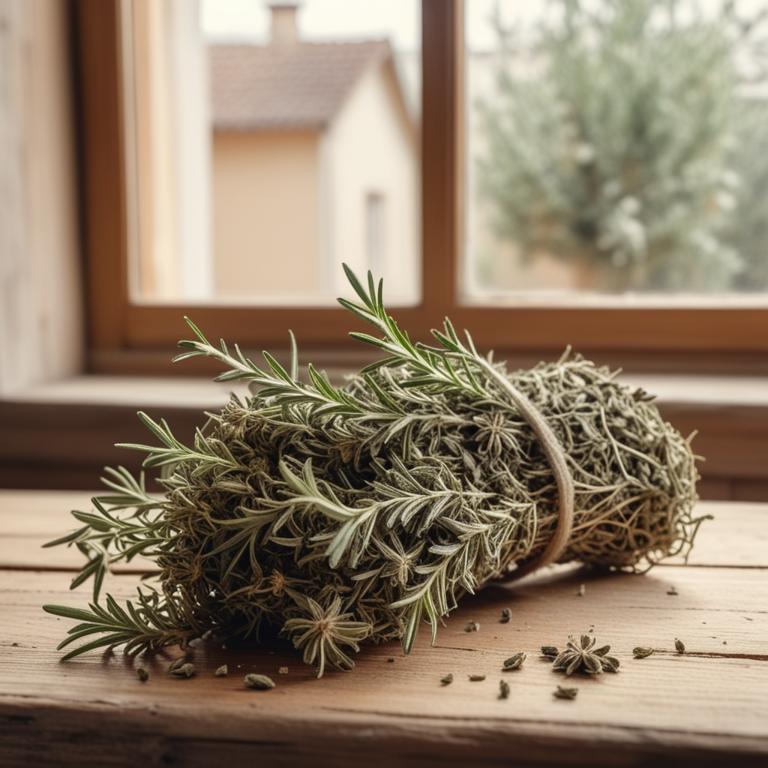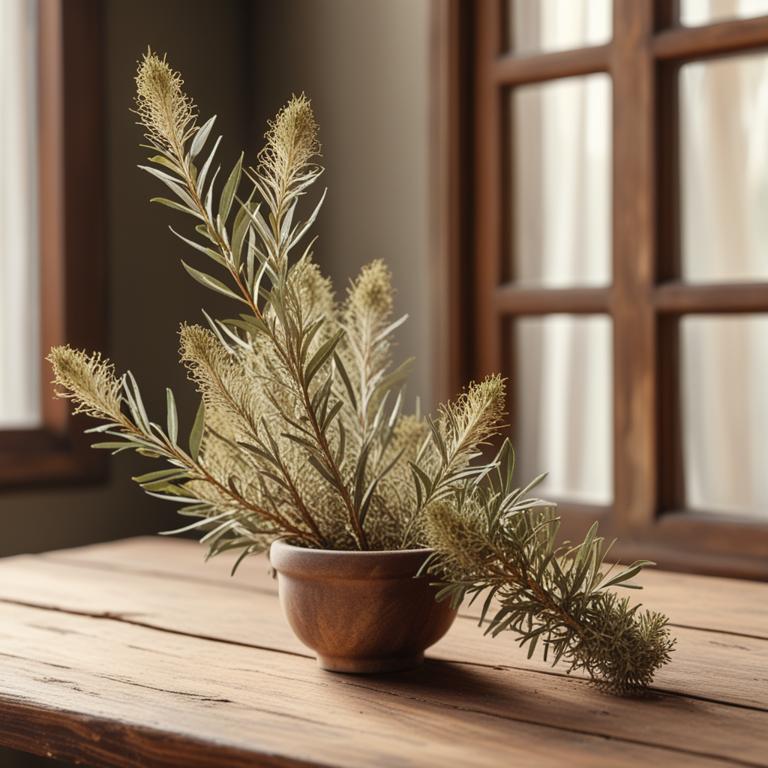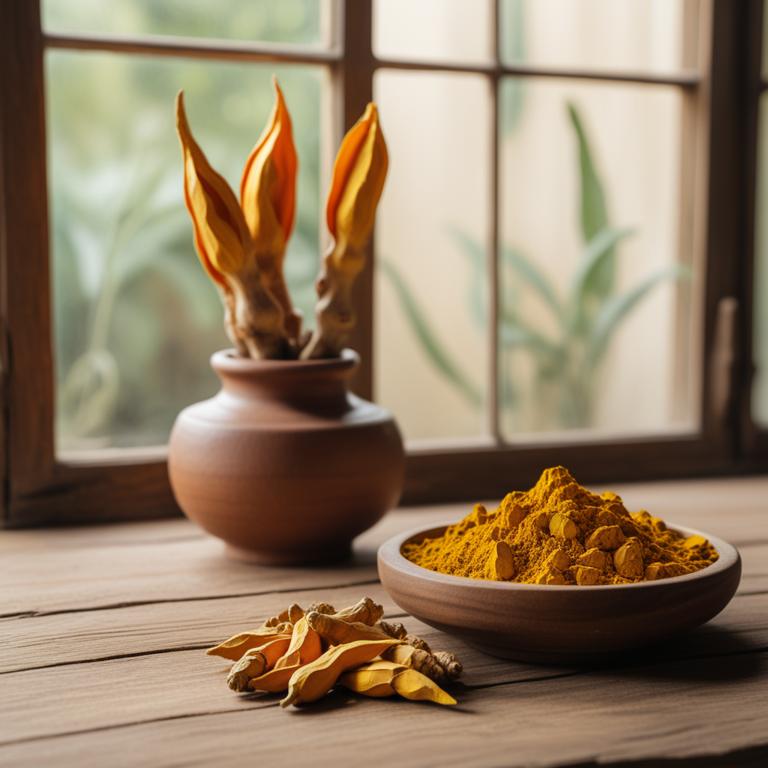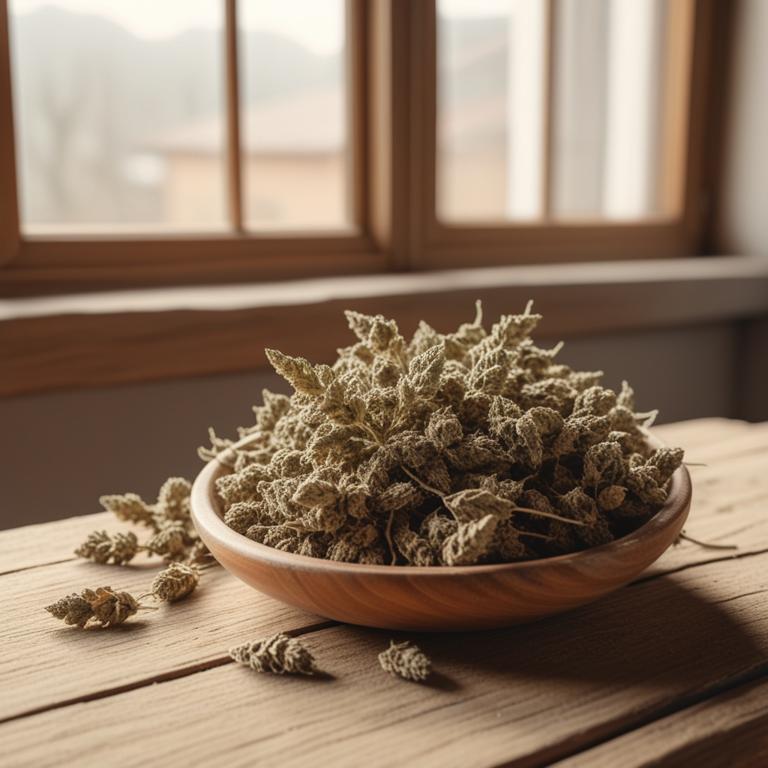Updated: Dec 1, 2024
Rashes: Causes and Homeopathic Herbal Solutions
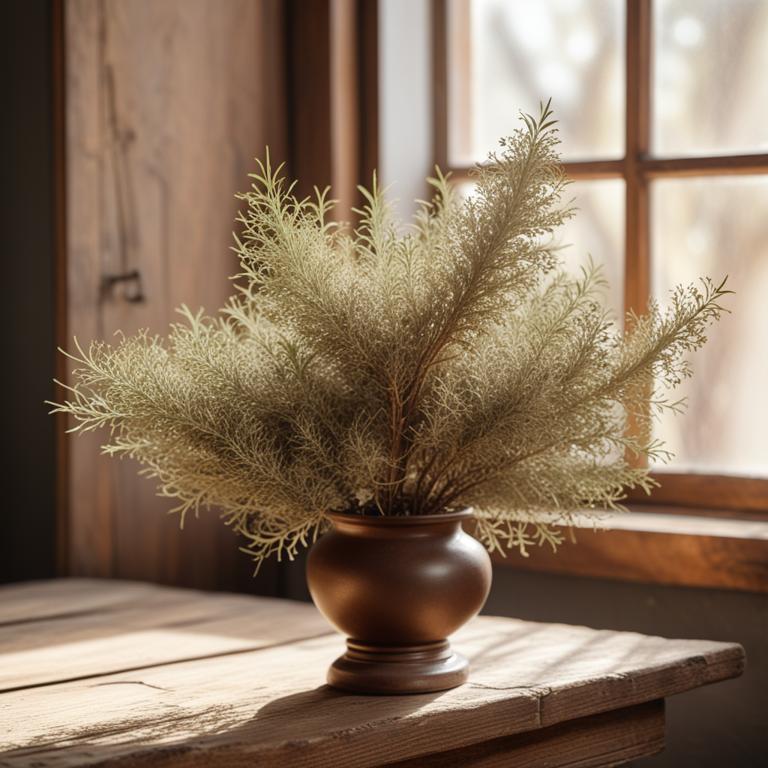
A rash is a skin irritation that can be itchy, painful, and uncomfortable.
It can ruin a beautiful day, keeping you indoors and away from activities you enjoy. Rashes can appear anywhere on the body and are usually caused by an allergic reaction, bug bites, or skin conditions like eczema or acne. Sometimes, rashes can be a sign of an underlying issue, like a food allergy or a bacterial infection. Herbs have been used for centuries to soothe and heal rashes. Aloe vera, with its cooling and moisturizing properties, is a popular remedy for itchy rashes.
Calendula, a flowering plant, has anti-inflammatory properties that can help reduce redness and swelling. Chamomile, known for its calming effects, can also help ease the discomfort and itching associated with rashes. To use these herbs, you can try making a tea by steeping dried calendula or chamomile flowers in hot water. Strain the liquid and apply it to the affected area with a cotton ball. Aloe vera gel can be applied directly to the skin, or you can add it to a bath for a soothing soak. Some people also use herbal oils, like coconut oil infused with calendula, as a topical treatment.
These remedies can be especially helpful when you're looking for a natural and gentle way to soothe a rash and get back to your normal routine.
Table of Contents
What leads to the formation of rashes?
The main causes of rashes are varied and can be caused by different factors.
Eczema, a common skin condition, is often triggered by genetic factors, but can also be caused by environmental factors such as dry skin, cold weather, and harsh soaps. Psoriasis, another chronic skin condition, is caused by an overactive immune system that leads to the buildup of skin cells and inflammation.
Allergies can cause rashes due to an allergic reaction to substances such as pollen, dust mites, or certain foods, which can cause the skin to become inflamed and irritated. Insect bites and stings can cause rashes as the venom from the insect's bite or sting can cause an allergic reaction and lead to inflammation and redness.
Fungal infections, such as ringworm or athlete's foot, can cause rashes due to the growth of fungi on the skin, which can cause irritation and inflammation.
What are the benefits of using herbs for skin rashes?
Using herbs for rashes can be really helpful.
One of the main benefits is that they can provide relief from itching and discomfort. Some herbs have anti-inflammatory properties, which means they can reduce swelling and redness associated with rashes.
Others have antiseptic properties, which can help prevent infection and promote healing. Herbs can also be used to soothe and calm irritated skin, making it feel cooler and more comfortable. Additionally, some herbs have natural antihistamine properties, which can help alleviate allergic reactions and reduce the severity of rash symptoms.
By using herbs, you can also avoid harsh chemicals and artificial ingredients found in some commercial creams and ointments, which can be irritating to the skin.
What are the primary medicinal herbs for treating rashes?
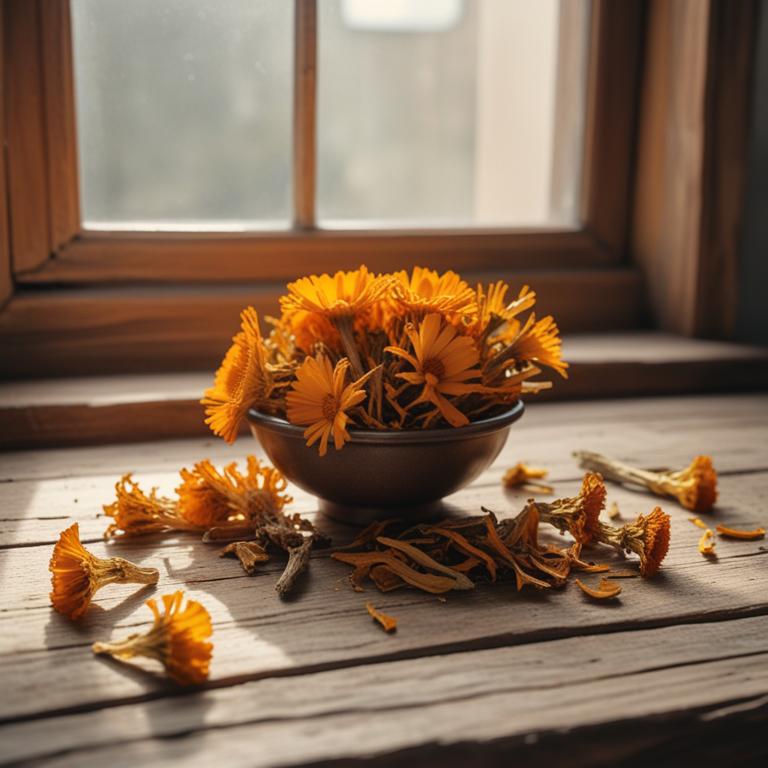
Herbs can be really helpful in soothing and treating rashes.
One of the most effective herbs for rashes is Calendula officinalis, also known as marigold. It's got anti-inflammatory properties that can reduce swelling and itching. When applied topically, it can also promote healing and prevent infections. Aloe barbadensis, or aloe vera, is another popular herb for skin issues. Its gel can provide instant relief from itching and inflammation by cooling and soothing the skin. It's also got antibacterial properties that can help prevent infections from spreading. Symphytum officinale, or comfrey, is a herb that's often used to treat skin injuries and irritations. It's got anti-inflammatory properties that can reduce swelling and promote healing.
It's also got a soothing effect that can calm the skin and reduce itching. Hypericum perforatum, or St. John's Wort, is a herb that's often used to treat skin irritations, including rashes. It's got anti-inflammatory and antiseptic properties that can reduce swelling and prevent infections. It's also got a soothing effect that can calm the skin and reduce itching. Arnica montana, or mountain arnica, is a herb that's often used to treat skin irritations, including rashes. It's got anti-inflammatory properties that can reduce swelling and promote healing. It's also got a soothing effect that can calm the skin and reduce itching. All of these herbs can be used topically to help soothe and treat rashes. They can be applied directly to the affected area in the form of creams, ointments, or oils.
However, it's always a good idea to do a patch test before using any new herb to ensure that you're not allergic to it.
What are the widely used herbal remedies for rashes?
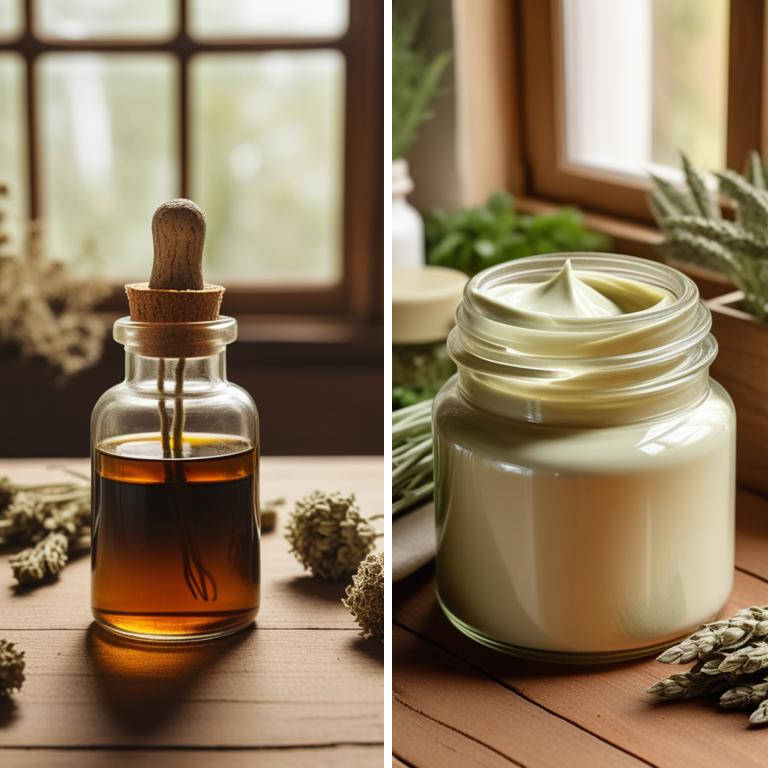
Herbal preparations can be very helpful in soothing and treating rashes.
A salve is a topical ointment made from herbs like calendula and aloe vera. These herbs have anti-inflammatory properties that can reduce redness and itching in rashes. A decoction is a liquid herbal extract made by steeping herbs like plantain and chamomile in boiling water. These herbs have anti-inflammatory and antiseptic properties that can help calm and clean the skin, reducing the risk of infection in rashes. An infusion is similar to a decoction, but made with cold water. It's often used for delicate herbs like peppermint and lavender, which can be too potent if made with boiling water.
These herbs can help soothe and calm the skin, reducing itching and discomfort in rashes. A tincture is a concentrated liquid extract made from herbs like tea tree oil and echinacea. These herbs have antiseptic and anti-inflammatory properties that can help fight infection and reduce inflammation in rashes. Tinctures can be applied topically or taken internally to help treat rashes from the inside out. A cream is a topical ointment made from a mixture of herbs and other ingredients like beeswax and coconut oil. Herbs like aloe vera and chamomile are often used in creams to soothe and calm the skin, reducing itching and redness in rashes.
Creams can be applied directly to the affected area to help treat rashes and promote healing.
Additional Resources:
What herbs are not recommended for individuals who have rashes?
If you have a rash, it's a good idea to be careful when using certain herbs.
Rhus toxicodendron, also known as poison ivy, can cause severe skin irritation and make rashes much worse. If you touch poison ivy by accident, using the same herb to treat your rash might not be the best idea. Taxus baccata, or yew, is a plant that contains a toxic substance called taxine. This can cause a range of symptoms, including skin irritation and allergic reactions, which can make rashes even more uncomfortable. If you're already dealing with a rash, adding taxine to the mix might not be helpful. Sanguinaria canadensis, or bloodroot, can cause skin irritation and allergic reactions in some people.
If you're already experiencing a rash, using bloodroot might make things worse. It's best to stick with herbs that are known to be safe for your skin. Cinchona officinalis, or cinchona, contains a compound called quinine. Quinine can cause skin irritation and allergic reactions, which can be a problem if you're already dealing with a rash. Using cinchona to treat your rash might not be the best choice. Gelsemium sempervirens, or gelsemium, can cause a range of symptoms, including skin irritation and allergic reactions. If you're already experiencing a rash, using gelsemium might make things worse.
It's always a good idea to be careful when trying new herbs, especially if you have sensitive skin.
FAQ
Are there any specific herbs that can prevent rashes?
Aloe vera is known for soothing and calming irritated skin.
It can help prevent rashes caused by sunburn or dry skin. Calendula, another herb, has anti-inflammatory properties that can reduce redness and itching.
These herbs can be applied topically to help protect the skin from irritation and inflammation.
Is it safe to use herbal remedies for rashes during pregnancy?
When it comes to using herbal remedies for rashes during pregnancy, be cautious.
Some herbs can pass into the baby's bloodstream, which may cause problems. For example, comfrey and pennyroyal have been linked to birth defects.
It's best to talk to your body about what's safe and what's not.
Are there any herbs that can reduce the frequency of rashes?
Some herbs like aloe vera and calendula have been found to help soothe and calm skin irritations that can cause rashes.
Aloe vera's cooling properties can reduce redness and inflammation, while calendula's anti-inflammatory properties can help ease discomfort and promote healing.
These herbs can be applied topically to affected areas.
Related Articles
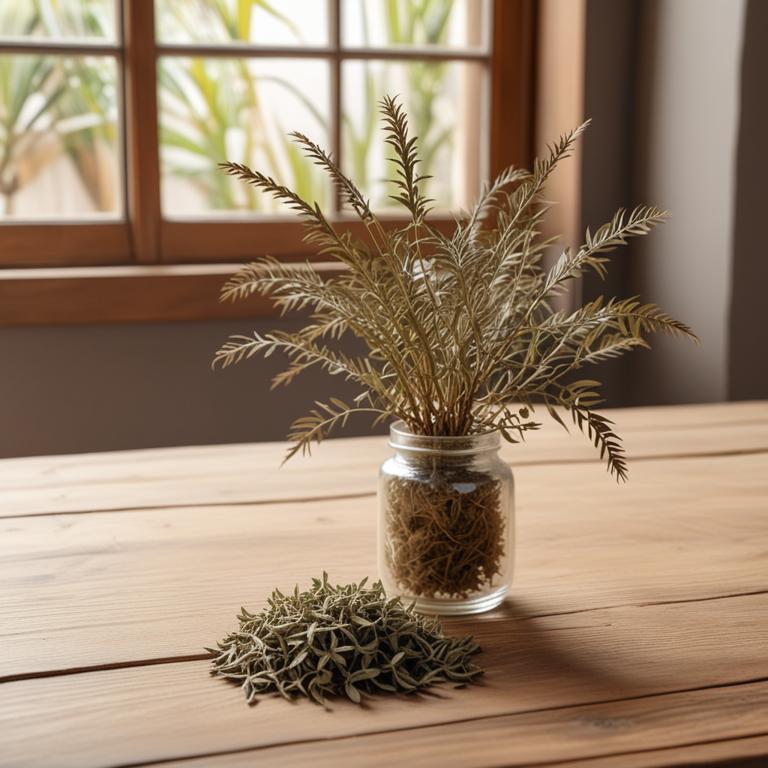
Baldness: Causes, Prevention, and Herbal Remedies

Cracked Heels: Causes, Symptoms and Treatment with Medicinal Herbs and Herbal Remedies
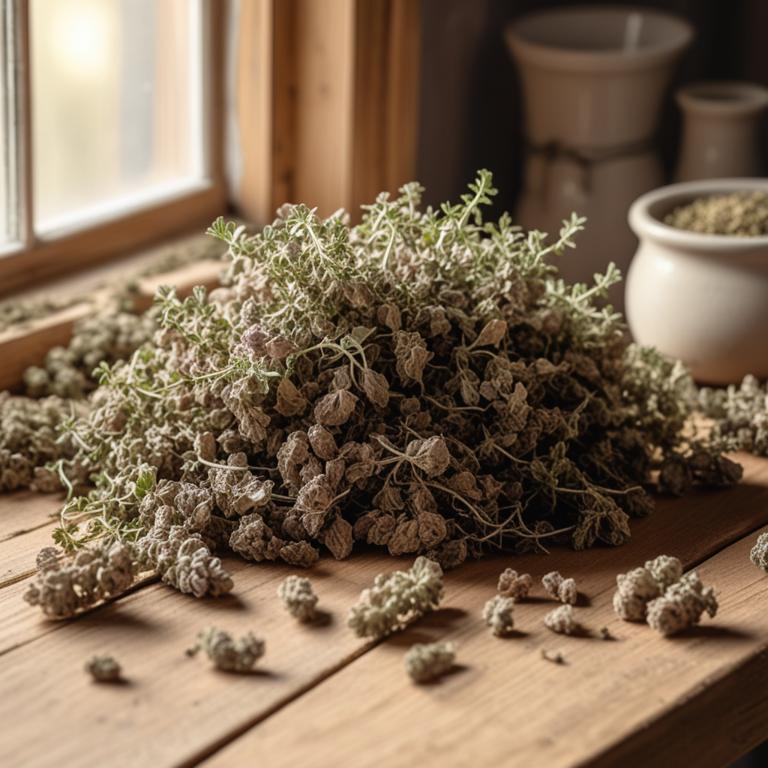
Open Pores: The Causes, Medicinal Herbs, and Herbal Remedies for Healthy Skin
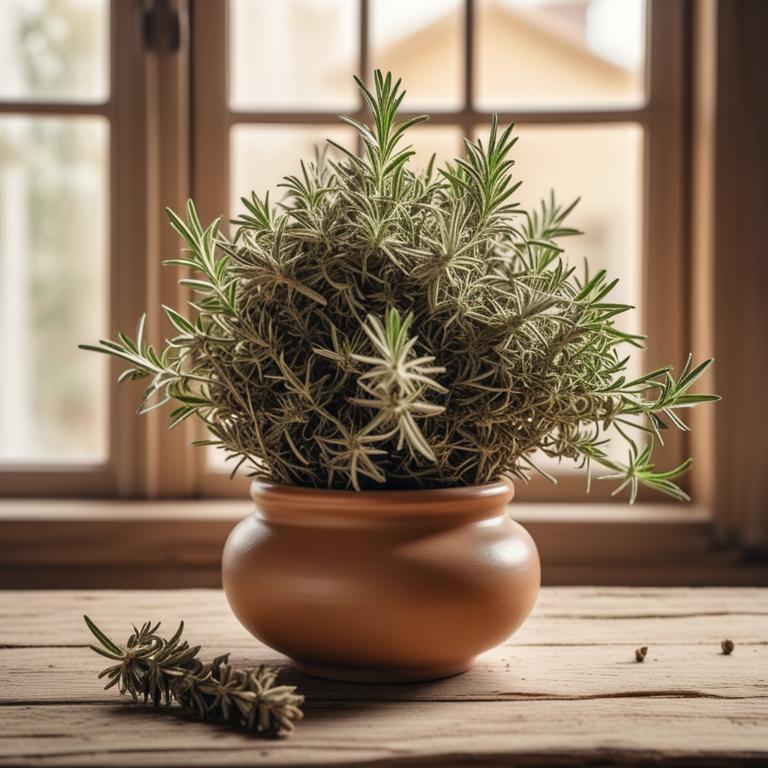
Understanding and Treating Oily Skin with Medicinal Herbs and Preparations
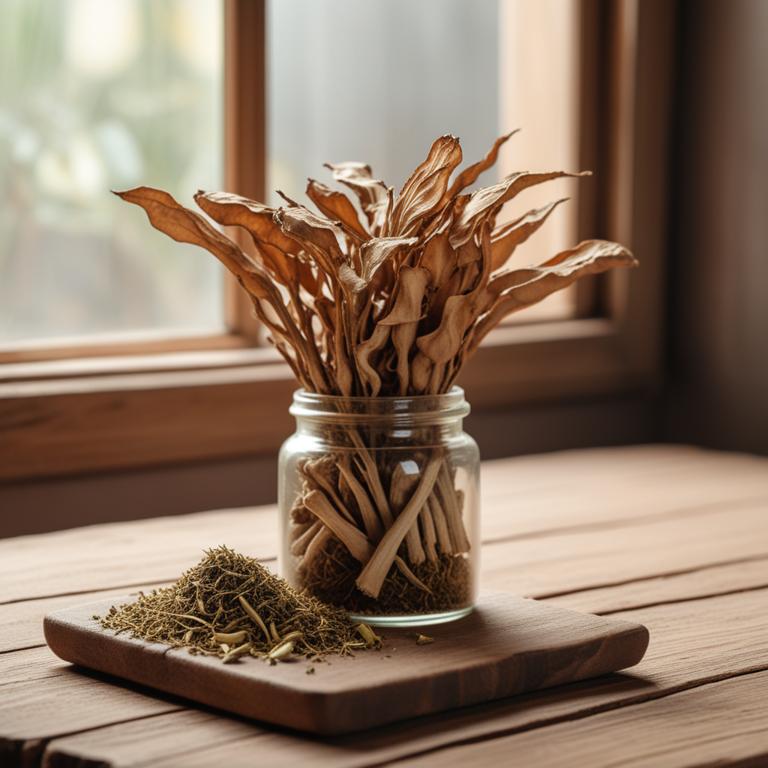
Swollen Gums Causes and Natural Herbal Preparations
